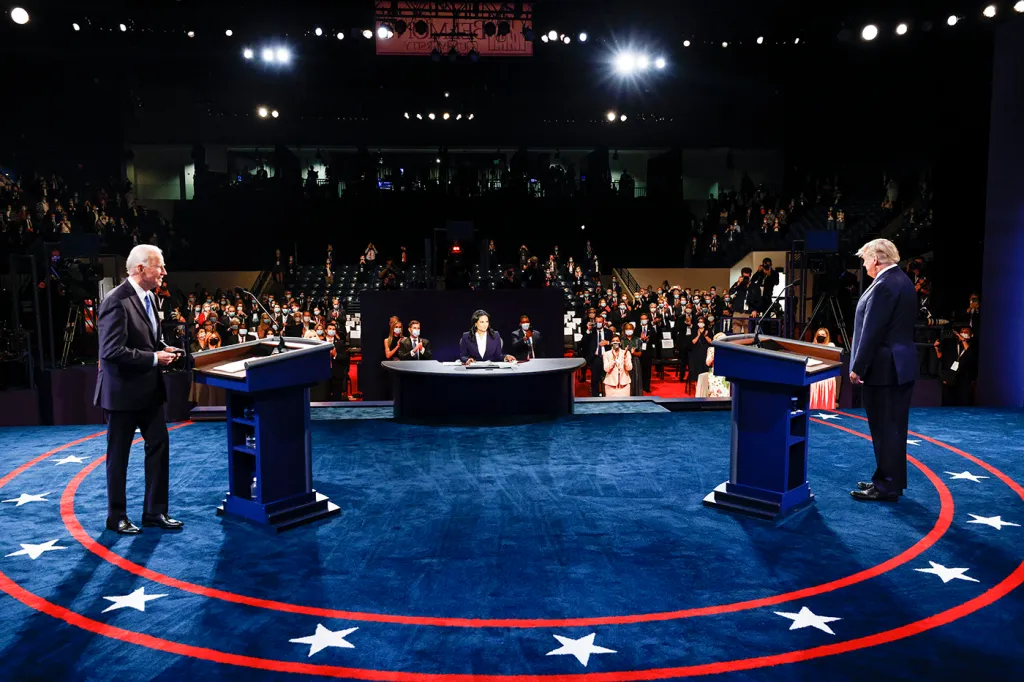In a highly charged political atmosphere, the CNN Presidential Debate in Atlanta has become a focal point for discussions about leadership and party strategy. The performance of former President Joe Biden during the debate has ignited fierce internal debates within his party, with some top advisors asserting that the Democratic Party’s reaction was extreme.

(Biden, Harris visit Atlanta to push for voting reform bill)
Debate Performance Under Scrutiny
During the debate, which took place on June 27, 2024, former President Biden’s performance was widely described as below expectations by many observers. Critics pointed to his weak vocal delivery and moments of hesitancy, arguing that these issues reflected poorly on his ability to effectively counter the vigorous style of current President Donald Trump. While President Trump was largely seen as dominating the stage with his forceful rhetoric, several media outlets noted that the overall tone of the debate was contentious, leaving viewers with mixed impressions of both candidates.
A senior advisor who has worked with former President Biden remarked at a Harvard University discussion, “I think the party lost its mind. Normally, a rough debate might cause some concern, but in this case it felt like the response was overblown.” He added, “Sometimes you can lose the campaign about the campaign,” suggesting that the internal narrative shifted so drastically that it overshadowed other aspects of the campaign. This sentiment has fueled ongoing debates about whether the performance alone could justify a complete overhaul of the party’s strategy.
Party Reaction and Polling Shifts
The fallout from the debate was immediate. Headlines in major media outlets labeled the performance as “disastrous” and “incoherent,” igniting a flurry of commentary both inside and outside the Democratic Party. Prominent figures within the party called for serious introspection over the candidate’s viability. Some voices even went as far as to recommend that former President Biden step aside, arguing that the debate had so severely damaged his campaign’s momentum that a new direction was necessary.

(President Donald Trump and Democratic former President Joe Biden participate in the final presidential debate at Belmont University on Oct. 22, 2020, in Nashville, Tenn. AP Photo by Jim Bourg)
Polling data in the days following the debate revealed a noticeable narrowing in the gap between Biden’s camp and current President Trump’s supporters. While initial interpretations of the debate suggested that Trump had decisively outperformed Biden, subsequent focus groups indicated a more nuanced picture. Participants expressed concerns about both candidates. Many noted that although Biden’s performance did raise questions about his energy and communication style, they were equally unsettled by Trump’s remarks regarding his refusal to accept election outcomes and his handling of sensitive events such as the January 6 incidents.
Expert Analysis and Future Implications
The debate has opened up a broader discussion on campaign dynamics and media influence. New York Times columnist Thomas Friedman, a longtime Biden supporter, characterized the debate as one of the most heartbreaking moments in presidential campaign history, while other political strategists caution against attributing too much weight to a single event. They argue that debates often serve as a catalyst for larger strategic shifts rather than definitive turning points.
Former Biden advisor Mike Donilon emphasized that while the debate performance was a significant setback, it was only one factor in a complex political landscape. “It’s important to look at the overall campaign. Yes, the performance was far from ideal, but we also have to consider that voters are evaluating both candidates on multiple issues—from economic policies to national security,” he noted.
As the campaign continues to evolve, party insiders and political analysts agree that the coming weeks will be critical. The internal party turmoil following the debate may lead to strategic realignments ahead of the next election cycle, as both former President Biden’s camp and current President Trump’s team reassess their approaches in a rapidly shifting political environment.


